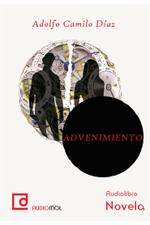Blog del Instituto Cervantes de Dublín
Torre Martello
Audiolibro de la semana | Audiobook of the Week: El huésped
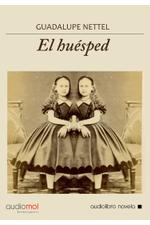 El audiolibro de la semana es una de las propuestas más interesantes de la literatura mexicana reciente: El huésped de Guadalupe Nettel. Para descargarte esta historia fascinante necesitas la tarjeta de la biblioteca y hacer click aquí.
El audiolibro de la semana es una de las propuestas más interesantes de la literatura mexicana reciente: El huésped de Guadalupe Nettel. Para descargarte esta historia fascinante necesitas la tarjeta de la biblioteca y hacer click aquí.
La extraña historia de una niña habitada interiormente por un ser inquietante, quizás imaginario, quizás no. Ana sostiene una lucha silenciosa contra esa hermana siamesa, hasta que el huésped comienza a manifestarse en su entorno familiar de una manera devastadora.
Alrededor de esa presencia se fraguan los acontecimientos de una vida, entre ellos las tragedias familiares, su existencia como adulta. Los personajes, incluida la ciudad, se desdoblan en una confusión de reflejos, se mueven entre lo superficial y lo profundo, sin que sepamos nunca el territorio que pisamos. También describe la cara subterránea de la ciudad de México.
Son personas que no encuentran un lugar en el mundo y se organizan en grupos paralelos que imponen sus propios valores y que comprenden su rara belleza. La autora explora estos universos guiada por una intuición: en los aspectos que nos negamos a ver del mundo -o de nosotros mismos- se esconden las pautas que nos ayudan a sobrellevar la existencia.
The audiobook of the week is one of the most interesting novels of recent Mexican narrative: El huésped by Guadalupe Nettel. If you wish to download this fascinating story you need your library card and make click here.
This is the strange story of a girl who has a disturbing living being inside her, maybe imaginary, maybe not. Ana has a silent fight with her “Siamese sister” until it starts to act in her home environment in a devastating way.
Life, family tragedies and her existence as an adult evolve around this living being. The characters, including the city, are divided in a confusion of reflections and move between the superficial and the profound. We never know the territory where we are stepping. It is also described the subterranean side of Mexico DF.
These are people who are not able to find a place in the world and they organize each other in parallel groups who understand their rare beauty and have their own values. The author explores these universes guided for an intuition: the clues that help us to bear our existence lie in the aspects of the world or of ourselves that we don´t want to see.
Audiolibro de la semana | Audiobook of the Week: Asuntos propios
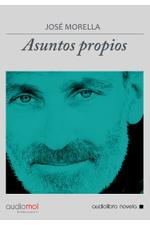 Asuntos propios de José Morella es el audiolibro propuesto esta semana. Descargarlo es tan fácil como coger tu carnet de biblioteca y hacer click aquí.
Asuntos propios de José Morella es el audiolibro propuesto esta semana. Descargarlo es tan fácil como coger tu carnet de biblioteca y hacer click aquí.
Roberto es un hombre acostumbrado a hacer lo que le da la gana. Un hombre independiente. Se jubiló hace seis años, pero, a sus setenta y un años, sigue traduciendo. Y cada mañana se sienta delante del ordenador, y traduce durante horas. La señora Dolores, la portera, sube a limpiar el piso un par de veces por semana pero cuando sufre una embolia y ya no puede volver a trabajar, Isabel, la hija de Roberto, insiste en que su padre pida una asistenta.
Un lunes, Jacinta llama a la puerta. Su belleza y su carácter impresionan a Roberto, y enseguida surge algo entre ellos. Entre esa mujer, que sabe que siempre será una extranjera que genera una sorda desconfianza entre los locales, y ese hombre culto, aún ávido de vida, surge una relación que subvierte sus vidas y las de los que les rodean.
Porque su goce suscita odios y revela prejuicios que nadie cree tener, pone en cuestión el limbo terrible al que los hijos condenan a los padres, los jóvenes a los viejos, los iguales a los diferentes. Una elegante, sagaz fábula de la cotidianeidad, llena de inesperadas facetas a descubrir.
This week we suggest you Asuntos propios by José Morella. Downloading this audiobook is as easy as taking you library card and making click here.
Roberto is someone who is used to do whatever he wants. An independent man. He´s been retired for six years but even though he´s 71 years old, he still translates every day for hours.
Ms Dolores, the caretaker, cleans up his apartment twice a week but when he suffers an embolism and cannot work anymore, Isabel, Roberto´s daughter, wants his father to get someone who looks after him.
One day, Jacinta knocks on the door. Her beauty and personality impress Roberto and there is an instant connection between them. A relationship is born between Jacinta, who knows that she always will be a foreigner and locals won´t trust her, and Roberto who is an educated man, still eager for life. This relationship changes their lives and the lives of those who surround them.
Their joy arouses hatred and reveals prejudices that everybody thinks they don´t have. It calls into question the terrible limbo where children condemn their parents, young people to old people,similar people to different people. This is an elegant, sharp fable of everyday life, full of unexpected sides to discover.
Audiolibro de la semana | Audiobook of the Week: El caldero de oro
El audiolibro que te proponemos esta semana es El caldero de oro de José María Merino. Si deseas descargártelo, solo necesitas dos cosas: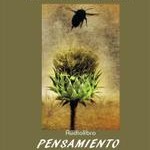 tener a mano tu carnet de biblioteca y hacer click aquí.
tener a mano tu carnet de biblioteca y hacer click aquí.
Es esta novela, el relato de un tiempo mítico que reúne en sí el pasado y el presente, marcado por las invasiones y los olvidos, origen y testigo de las vidas de quienes lo poblaron desde su principio. El caldero de oro será el símbolo de las estirpes que vivieron junto al río milenario, leyenda fundacional, símbolo insoslayable de la infancia de un protagonista que, un día, regresará al pueblo de sus antepasados, abandonado y solitario, para encontrase con un destino encerrado en su propia historia.
Narrada desde la memoria y la imaginación sustentada en un lenguaje que no olvida nunca su condición reveladora, El caldero de oro es una de las obras que evidencian la renovada vitalidad de la literatura española.
The audiobook of this week is El caldero de oro by José María Merino. If you wish to download it, you just need to follow two steps: take your library card and make click here.
This is a story about a mythical time that links past and present, a time marked by invasions and obscurity that is origin and witness of the lives who inhabited it since the beginning. The golden caldron is symbol of the lineage that lived next to the thousand-year-old river. It´s the original legend, the inescapable symbol of the main character´s childhood who one day comes back to the abandoned and lonely village where his ancestors lived to meet a destiny locked in its own history.
This story is told from the memory and imagination and it´s nurtured by a language that never forgets its revealing condition. El caldero de oro is one of the novels that show the renewed vitality of Spanish literature.
Audiolibro de la semana | Audiobook of the Week: Los girasoles ciegos
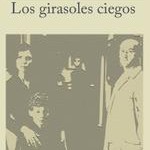 Esta semana te traemos en forma de audiolibro uno de los libros más reconocidos en la literatura española reciente: Los girasoles ciegos de Alberto Méndez. Para descargar esta gran novela, solamente necesitas tu carnet de la biblioteca y hacer click aquí.
Esta semana te traemos en forma de audiolibro uno de los libros más reconocidos en la literatura española reciente: Los girasoles ciegos de Alberto Méndez. Para descargar esta gran novela, solamente necesitas tu carnet de la biblioteca y hacer click aquí.
Un capitán del ejército de Franco que, el mismo día de la victoria, renuncia a ganar la guerra; un niño poeta que huye asustado con su compañera niña embarazada y vive una historia vertiginosa de madurez y muerte en el breve plazo de unos meses; un preso en la cárcel de Porlier que se niega a vivir en la impostura para que el verdugo pueda ser calificado de verdugo; por último, un diácono rijoso que enmascara su lascivia tras el fascismo apostólico que reclama la sangre purificadora del vencido.
Son historias de los tiempos del silencio, cuando daba miedo que alguien supiera que sabías. Cuatro historias, sutilmente engarzadas entre sí, contadas desde el mismo lenguaje pero con los estilos propios de narradores distintos que van perfilando la verdadera protagonista de esta narración: la derrota. Premio Nacional de Literatura 2005, Premio de la Crítica 2005, Premio Setenil 2004.
This week we bring you the audiobook of one of the most remarkable novels of recent Spanish literature: Los girasoles ciegos by Alberto Méndez. If you want to download this great novel, you just need your library card and make click here.
A captain who is on Franco´s side renounces to win the war on the very same day of the victory; a young poet runs away with his pregnant young partner and lives a vertiginous story of maturity and death in a brief period of time; a prisoner of the Porlier jail refuses to live a lie in order the executioner can be called executioner; finally, a lecherous deacon hides his lust behind the apostolic fascism that claims for the purifier blood of the defeated.
These are stories about those times of silence when you were scared that someone knew that you knew. Four stories subtly connected, narrated with the same language but with the different styles used by the narrators that shape the real protagonist of the novel: defeat. National Award of Literature 2005, Critics Award 2005, Setenil Award 2004.
Audiolibro de la semana | Audiobook of the Week: Y no vuelvas más por aquí
 Nuestra recomendación de la semana es el audiolibro Y no vuelvas más por aquí de Pedro Menchén. Si deseas descargarte esta historia, tan solo necesitas tener a mano tu tarjeta de la biblioteca y hacer click aquí.
Nuestra recomendación de la semana es el audiolibro Y no vuelvas más por aquí de Pedro Menchén. Si deseas descargarte esta historia, tan solo necesitas tener a mano tu tarjeta de la biblioteca y hacer click aquí.
Se trata de un entretenido y original thriller con dos personajes atípicos: un joven gay y un sicario colombiano, reunidos por azar y obligados a enfrentarse a sus propios demonios internos. El joven no puede evitar sentir atracción por el sicario a pesar de los miedos que le provoca. El joven se lanzará de lleno a una aventura de la que no conoce el final sólo por el placer de estar cerca de su amante. El cuerpo se lo pide. No te la pierdas. Esta novela negra te captura en su red desde la primera página.
Our recommendation for this week is the audiobook Y no vuelvas más por aquí by Pedro Menchén. If you wish to download this story, you only need to get your library card and make click here.
This is an entertaining and original thriller about two atypical characters: a young homosexual and a Colombian hit man who meet by chance and are obliged to face their own internal demons. The young man can´t avoid feeling attracted to the hit man despite also feeling scared of him. The young one will embark on an uncertain adventure only for the pleasure of being close to his lover. That´s what his body wants. Do no miss it. This black novel will engage you from the very first page.
Audiolibro de la semana | Audiobook of the Week: El balneario
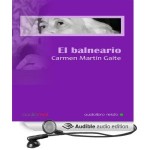 Esta semana te proponemos conocer esta colección de relatos de la gran escritora Carmen Martín Gaite a través del audiolibro El balneario.
Esta semana te proponemos conocer esta colección de relatos de la gran escritora Carmen Martín Gaite a través del audiolibro El balneario.
El balneario es el título de la novela corta que da título a esta colección. Escrita en 1953, la autora consiguió el Premio Café Gijón en 1954. Ya sabes que para descargar el audiolibro solo necesitas tu tarjeta de la biblioteca y hacer click aquí.
Se compone de diez magistrales relatos en los que se predomina una atmósfera onírica y opresiva en la que se mezclan sueños y realidad. El argumento de su historia principal es bastante sencillo. Matilde Gil de Olarreta llega junto a Carlos, probablemente su amante, a un balneario, donde son recibidos por los demás veraneantes de un modo hostil y misterioso.
This week we suggest that you enjoy El balnerario using our audiobook download service. It is a collection of short stories written by the great writer Carmen Martín Gaite.
El balneario is the title of the short novel that provides the title of this book. It was written in 1953 and won the Café Gijón Award in 1954. As you already know, you only need your library card and make click here to download the book.
The book consists of ten brilliant short stories. There is a common oniric atmosphere in most of them, mixing dreams and reality. The plot of the main story is fairly simple. Matilde Gil de Olarreta arrives with Carlos (probably her lover) to a resort where they receive a hostile and mysterious welcome from the other guests.
Audiolibro de la semana | Audiobook of the Week: Esta noche moriré
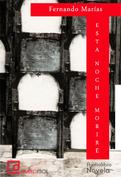 Con un inicio tan enigmático como “me suicidé hace dieciséis años”, Fernando Marías escribe una inquietante novela que te atrapará desde el primer momento. ¿Quieres escucharla en forma de audiolibro? Coge tu carnet de la biblioteca y haz click aquí.
Con un inicio tan enigmático como “me suicidé hace dieciséis años”, Fernando Marías escribe una inquietante novela que te atrapará desde el primer momento. ¿Quieres escucharla en forma de audiolibro? Coge tu carnet de la biblioteca y haz click aquí.
Delmar, un policía obsesionado en detener a un importante delincuente, se encuentra, 16 años más tarde de que consiga meterlo entre rejas, con que éste ha urdido un estratégico y macabro plan para vengarse. Aunque Delmar no es capaz, siquiera, de imaginar lo que le espera cuando recibe una larguísima carta. La estratagema del delincuente consiste en conseguir que acabe suicidándose, mostrándole hasta qué punto ha sido capaz de manipular su vida desde hace ya unos cuantos años.
This novel has an enigmatic beginning : “I committed suicide sixteen years ago”. Fernando Marías writes a disturbing novel that will hook you from the very first moment. Do you want to listen to it as an audiobook? Take your library card and make click here.
Delmar, a police man obsessed with arresting an important criminal, finds outs that he has created a strategic and macabre plan for revenge 16 years after putting him in jail. Delmar cannot imagine though what is coming when he receives a very long letter. The stratagem of the delinquent consists of making him commit suicide, showing him how he has been manipulating his life for quite a long time.
Audiolibro de la semana | Audiobook of the Week: En primera línea
Emoción para el audiolibro de esta semana: En primera línea escrito por el periodista Baltasar Magro. Para descargarlo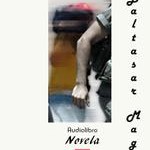 solo necesitas tu carnet de biblioteca y hacer click aquí.
solo necesitas tu carnet de biblioteca y hacer click aquí.
Beirut, 1982. Helena y Luis, dos corresponsales de Televisión Española, y Álex, novato periodista de la agencia EFE, viven de cerca el sitio a los últimos reductos palestinos y la tensión de la guerra del Líbano. Envueltos en la angustiosa atmósfera de la guerra, y en medio de la desolación, surge entre ellos una buena amistad que perdurará con el paso de los años.
La relación entre Luis, Helena y Álex, encuadrada en el mundo real de los medios de comunicación, constituye el eje esencial de esta novela.
El autor de esta trepidante novela perfila un relato intenso para describirnos los secretos de la profesión periodística con una fascinante trama que nos sumerge en los entresijos de la televisión. Baltasar Magro ha trabajado durante más de 30 años en diferentes cadenas como guionista de programas culturales y como director de diferentes espacios informativos, entre los que destaca el mítico Informe Semanal.
An exciting story for the audiobook of the week: En primera línea, written by journalist Baltasar Magro. To download it, just get your library card and press here!
Beirut, 1982. Helena and Luis work as correspondents for the Spanish National Broadcast and Alex is a new journalist working for EFE Press Agency. The three of them live first- hand the siege to the last Palestinian strongholds and the strains due to the war in Lebanon. Involved in the distressing atmosphere of war, a good friendship arises among them in the middle of desolation, lasting through the years.
The relationship between Luis, Helena and Alex, framed in the world of communication media, is the subject matter of this novel. Baltasar Magro outlines an intense story to describe the secrets of Journalism with a fascinating plot that immerses us in the secrets of television.
The author of this exciting novel has been working for over 30 years in different television broadcasters as screenwriter for cultural programmes and director of several news programmes, among which highlights the mythical “Informe Semanal”.
Audiolibro de la semana | Audiobook of the Week: Lo que me queda por vivir
La popular escritora y periodista Elvira Lindo es la autora de la novela Lo que me queda por vivir. Esta semana os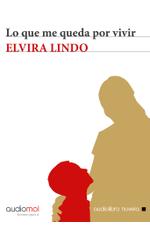 recomendamos que disfrutéis de esta obra a través de nuestro servicio de audiolibros. Si todavía no sabes como utilizarlo verás que es muy fácil, solo necesitas tu carnet de la biblioteca y hacer click aquí.
recomendamos que disfrutéis de esta obra a través de nuestro servicio de audiolibros. Si todavía no sabes como utilizarlo verás que es muy fácil, solo necesitas tu carnet de la biblioteca y hacer click aquí.
Antonia tiene veintiséis años cuando se ve sola con un niño de cuatro en el cambiante Madrid de los ochenta. La suya es la historia de un viaje interior y la crónica de un aprendizaje, el de una mujer que se enfrenta a la juventud y a la maternidad mientras intenta hacerse un lugar en la vida, en una ciudad y en una época de tiempo acelerado, más propicio a la confusión que a la certeza, sobre todo para alguien que ha tenido una experiencia demasiado temprana de la pérdida y de la soledad.
The popular writer and journalist Elvira Lindo is the author of the novel Lo que me queda por vivir. This week we recommend you to enjoy this work through our audiobook downloading service. If you still don´t know how to use it, you can see how easy it is, you just need your library card and make click here.
Antonia is 26 years old when she finds herself with a four year old in a changing Madrid during the 80s. It is the story of an inner journey and the chronicle of a learning process, the one experienced by a woman who faces youth and motherhood while she tries to find her place in life and in a city during fast times. A time more suitable for confusion than for certainty, specially for someone who has lived loss and loneliness too soon.
Audiolibro de la semana / Audiobook of the week: El padre de Blancanieves
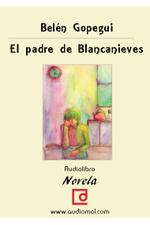 El audiolibro de la semana nos llega de la mano de Belén Gopegui con el enigmático título de El padre de Blancanieves. Para descargártelo, solo tienes que pulsar aquí con tu nombre de usuario y contraseña.
El audiolibro de la semana nos llega de la mano de Belén Gopegui con el enigmático título de El padre de Blancanieves. Para descargártelo, solo tienes que pulsar aquí con tu nombre de usuario y contraseña.
En El padre de Blancanieves, una profesora de instituto espera en su casa a que el repartidor del supermercado le traiga la compra. El repartidor se retrasa y ella se marcha. Horas después encuentra que le han dejado la compra a unos vecinos y se han estropeado los productos congelados.
La profesora llama al supermercado para quejarse. Al día siguiente, aún no se ha quitado el pijama cuando llaman al timbre; es el repartidor del supermercado, un hombre de Ecuador. El hombre le dice que por causa de su llamada telefónica le han despedido.
La profesora lamenta el incidente, pero el hombre insiste: ella es responsable de su despido, debe encontrarle otro empleo. A partir de ese momento, la vida de la profesora se ve afectada, y con ella, la vida de su familia.
Our audiobook of the week comes from the hand of Belén Gopegui with the enigmatic title of El padre de Blancanieves. To download it, just click here with your user name and password.
In El padre de Blancanieves, a school teacher is at home waiting for the delivery man that will bring her grocery shopping. He is late and she goes to work. When she returns, she realize that the delivery man left her products with her neighbors, and the frozen products are spoiled.
She calls the store to complain. The next day, she still has not taken off his piyama when the doorbell rings. It is the delivery man from the supermarket, a man from Ecuador. The man says that because of his phone call, he has been fired.
The teacher regrets the incident but the man insists, she is responsible for his firing. From that moment, the teacher’s life is affected, and with it, the life of her family.
Audiolibro de la semana | Audiobook of the week: El tiempo de Manolo
Si todavía no conoces el servicio de audiolibros para los socios de la biblioteca, solamente tienes que hacer click aquí para ver lo fácil que es usarlo. Es una forma amena de practicar vuestro español y la ventaja es que podéis llevaros cientos de historias a cualquier parte.
Esta semana os recomendamos El tiempo de Manolo, un minucioso relato biográfico de la juventud de su autor Ismael María González Arias. En esta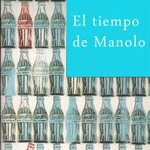 etapa se entregó al disfrute pleno del placer, al que, como tiene demostrado de sobra, sigue entregado en la actualidad. Valiéndose de un estilo narrativo torrencial y vivísimo, González Arias descubre por primera vez lo que para muchos va a resultar imperdonable: los misteriosos detalles de la vida de un pueblo allá por 1975.
etapa se entregó al disfrute pleno del placer, al que, como tiene demostrado de sobra, sigue entregado en la actualidad. Valiéndose de un estilo narrativo torrencial y vivísimo, González Arias descubre por primera vez lo que para muchos va a resultar imperdonable: los misteriosos detalles de la vida de un pueblo allá por 1975.
La amistad, el amor, el sexo, las drogas y la muerte son, en resumidas cuentas, los ingredientes básicos en este «plato fuerte» que no tiene ninguna intención moralizante pero sí una clara vocación de homenaje, público y notorio, a una forma de vivir que, en ciertas circunstancias, resulta la única posible.
If you still don´t know our audiobooks downloading service for members of the library, you only have to make click to see how easy it is to use it. It´s an entertaining way to practise your Spanish and the good thing is that you can take thousands of stories anywhere.
This we keek we recommend you El tiempo de Manolo, a detailed biographical story about the youth of his author, Ismael María González Arias. During that time, he fully enjoyed the pleasures of life, something we are aware that he is still doing at the moment. Using a rich and lively narrative style, González Arias discovers the misterious details of life in a small town for the first time in 1975.
Friendship, love, sex, drugs and death are,to put it in a nutshell, the basic ingredients of a book that doesn´t have any moralizing purpose. It is indeed a public and noticeable tribute to a way of life that in some circumstances turns out to be the only possible one.
Advenimiento: Audiolibro de la semana / Audiobook of the week
¿Disfrutasteis del audiolibro de la semana pasada? ¿Os gustan las historias de terror? Pues con ellas seguimos, porque el audiolibro de esta semana también se adentra en el terreno de lo fantástico, el misterio y el horror. Si os da miedo la oscuridad, por favor, no descarguéis este audiolibro.
La historia: Advenimiento es un viaje al infierno… o quizás la salida de él. Adrián Montes es psicoantropólogo. Lo llaman para que se una al equipo que investiga un nuevo advenimiento: la aparición, en una vieja casa, de dos semiesferas ocupadas por un hombre y una mujer ¿Una aparición divina? ¿Una manifestación del maligno… o de algo peor?
Advenimiento es una historia de muerte más allá del amor.
El autor: Adolfo Camilo Díaz López es un escritor, dramaturgo y gestor cultural asturiano. Como escritor, destaca como autor de textos teatrales y de novelas cortas, y ha ganado algunos de los premios más prestigiosos de la literatura asturiana, como el Premio Xosefa de Xovellanos en dos ocasiones y el de novela corta de la Academia de la Lengua Asturiana. Obtuvo la licenciatura en Historia en la Universidad de Oviedo.
¿Did you enjoyed last week audiobook? Do you like scary stories? Good, because this week audiobook also delves into the realm of fantasy, mystery and horror. If you afraid of the dark, please do not download this file.
The story: Advenimiento is a journey to hell. Adrian Montes is psicoantropologist. He is asked to join the team investigating a new mistery: the appearance of two hemispheres occupied by a man and a woman in an old house. A divine apparition? A manifestation of evil … or something worse?
Advenimiento is a story of love beyond death.
The author: Adolfo Camilo Diaz Lopez is a writer, playwright and cultural manager from Asturias, Spain. As a writer, stands out as the author of dramatic texts and short stories, and has won some of the most prestigious awards of Asturian literature. He graduated in History at the University of Oviedo.
